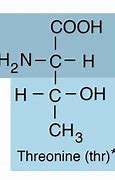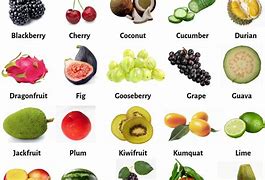
Threonine Adalah
Tác dụng phụ khi sử dụng threonine
Nhìn chung threonine sử dụng tương đối an toàn với liều lên tới 4g mỗi ngày trong vòng 12 tháng. Một số bệnh nhân gặp phải tác dụng không mong muốn như đau bụng, đau đầu, buồn nôn và phát ban trên da.
Đối với bệnh nhân xơ cứng teo cơ một bên, có một số lo ngại sử dụng threonine có thể làm giảm hoạt động của phổi. Trong một nghiên cứu, bệnh nhân xơ cứng teo cơ một bên uống liều 4g một ngày chia bốn lần trong 6 tháng đã biểu hiện sự suy giảm hoạt động phổi so với những bệnh nhân không sử dụng threonine. Tuy nhiên cần thêm nhiều bằng chứng nữa để khẳng định điều này.
Efek samping Threonine
Sama seperti obat pada umumnya, penggunaan treonin dapat menimbulkan efek samping. Akan tetapi, reaksinya bisa jadi berbeda-beda, tergantung dari dosis obat, usia, dan daya tahan tubuh masing-masing orang.
Sejumlah efek samping threonine yang mungkin terjadi antara lain:
Reaksi alergi yang serius cukup jarang terjadi. Namun, waspadai jika muncul gejala alergi parah (anafilaktik) seperti:
Bila itu terjadi, segera periksakan diri ke dokter untuk mendapatkan penanganan lebih lanjut.
Dosis threonine bisa jadi berbeda-beda pada setiap orang. Hal ini tergantung dari usia, jenis kelamin, tingkat keparahan penyakit, dan kebutuhan masing-masing orang.
Suplemen treonin di pasaran umumnya tersedia dalam bentuk kapsul 500 mg dan dapat dikonsumsi 3 x sehari atau sesuai kebutuhan. Di sisi lain, penelitian melaporkan bahwa konsumsi suplemen treonin sebanyak 4 gram setiap hari dinyatakan aman digunakan selama 12 bulan.
Pastikan untuk selalu mengikuti dosis dan aturan minum suplemen yang tertera pada kemasan. Bila perlu, tanyakan lebih lanjut dengan dokter supaya lebih aman.
Potensi interaksi obat terjadi ketika digunakan bersamaan dengan obat lain, sehingga dapat mengubah cara kerja obat. Sebagai akibatnya, obat tidak dapat bekerja dengan maksimal atau bahkan menimbulkan racun yang membahayakan tubuh.
Obat untuk penyakit Alzheimer, seperti memantine, diketahui dapat menimbulkan interaksi obat dengan threonine. Konsumsi dua obat tersebut secara bersamaan dapat menurunkan efektivitas obat Alzheimer.
Kemungkinan ada obat lain yang juga dapat bereaksi dengan treonin tapi belum dicantumkan dalam daftar di atas. Oleh sebab itu, penting untuk mengetahui obat apa saja yang sedang Anda konsumsi dan beri tahukan pada dokter.
Hal-hal yang harus diperhatikan selama menggunakan threonine adalah sebagai berikut:
Threonine là acid amin thiết yếu cuối cùng được tìm ra bởi William Cumming Rose vào năm 1935. Acid amin này hỗ trợ hệ miễn dịch của cơ thể bằng cách tham gia vào quá trình sản xuất kháng thể.
Threonine là một acid amin thiết yếu nhưng cơ thể không tự tổng hợp được mà phải lấy từ thức ăn hoặc từ dược phẩm. Threonine hỗ trợ nhiều cơ quan như thần kinh trung ương, tim mạch, gan và hệ miễn dịch. Hơn nữa nó còn giúp tổng hợp glycine và serine, hai thành phần giữ vai trò sản xuất collagen, elastin và mô cơ. Thêm vào đó, threonine hỗ trợ cho xương và men răng chắc khỏe, đẩy nhanh tốc độ liền vết thương (sau chấn thương hay phẫu thuật) bằng cách thúc đẩy hệ miễn dịch.
Phương thức hoạt động của threonine như sau:
Threonine có nhiều trong thịt, chế phẩm từ sữa và trứng, ngoài ra còn có trong mầm lúa mì, các loại hạt, các loại đậu, và một số loại rau nhưng với hàm lượng ít hơn.
Threonine có nhiều trong thịt, chế phẩm từ sữa và trứng
2-Amino-3-hydroxybutanoic acid
InChI=1S/C4H9NO3/c1-2(6)3(5)4(7)8/h2-3,6H,5H2,1H3,(H,7,8)/t2-,3+/m1/s1
Key: AYFVYJQAPQTCCC-GBXIJSLDSA-N
D/L: Key: AYFVYJQAPQTCCC-FGNFWGHYNA-N
L: C[C@H]([C@@H](C(=O)O)N)O
Except where otherwise noted, data are given for materials in their
(at 25 °C [77 °F], 100 kPa).
Threonine (symbol Thr or T)[2] is an amino acid that is used in the biosynthesis of proteins. It contains an α-amino group (which is in the protonated −NH+3 form when dissolved in water), a carboxyl group (which is in the deprotonated −COO− form when dissolved in water), and a side chain containing a hydroxyl group, making it a polar, uncharged amino acid. It is essential in humans, meaning the body cannot synthesize it: it must be obtained from the diet. Threonine is synthesized from aspartate in bacteria such as E. coli.[3] It is encoded by all the codons starting AC (ACU, ACC, ACA, and ACG).
Threonine sidechains are often hydrogen bonded; the most common small motifs formed are based on interactions with serine: ST turns, ST motifs (often at the beginning of alpha helices) and ST staples (usually at the middle of alpha helices).
The threonine residue is susceptible to numerous posttranslational modifications.[4][5] The hydroxyl side-chain can undergo O-linked glycosylation. In addition, threonine residues undergo phosphorylation through the action of a threonine kinase. In its phosphorylated form, it can be referred to as phosphothreonine. Phosphothreonine has three potential coordination sites (carboxyl, amine and phosphate group) and determination of the mode of coordination between phosphorylated ligands and metal ions occurring in an organism is important to explain the function of the phosphothreonine in biological processes.[6]
Threonine was the last of the 20 common proteinogenic amino acids to be discovered. It was discovered in 1935 by William Cumming Rose,[7] collaborating with Curtis Meyer. The amino acid was named threonine because it was similar in structure to threonic acid, a four-carbon monosaccharide with molecular formula C4H8O5[8]
Threonine is one of two proteinogenic amino acids with two stereogenic centers, the other being isoleucine. Threonine can exist in four possible stereoisomers with the following configurations: (2S,3R), (2R,3S), (2S,3S) and (2R,3R). However, the name L-threonine is used for one single stereoisomer, (2S,3R)-2-amino-3-hydroxybutanoic acid. The stereoisomer (2S,3S), which is rarely present in nature, is called L-allothreonine.[9]
As an essential amino acid, threonine is not synthesized in humans, and needs to be present in proteins in the diet. Adult humans require about 20 mg/kg body weight/day.[10] In plants and microorganisms, threonine is synthesized from aspartic acid via α-aspartyl-semialdehyde and homoserine. Homoserine undergoes O-phosphorylation; this phosphate ester undergoes hydrolysis concomitant with relocation of the OH group.[11] Enzymes involved in a typical biosynthesis of threonine include:
Threonine is metabolized in at least three ways:
The degradation of threonine is impaired in the following metabolic diseases:
JavaScript is required...
Please enable Javascript in order to use PubChem website.
Threonine adalah asam amino esensial. Asam amino merupakan bahan yang digunakan tubuh untuk membentuk protein. Karena tergolong esensial, jenis asam amino ini tidak dapat dibuat sendiri oleh tubuh sehingga harus diperoleh dari luar melalui makanan.
Dalam dunia medis, treonin digunakan untuk mengatasi gangguan otot tak terkendali. Biasanya ditandai dengan gerakan tak sadar dan kencang pada otot (spastisitas), multiple sclerosis, kelainan bawaan yang ditandai dengan kelemahan dan kekakuan pada kaki (familial spastic paraparesis atau FSP), dan penyakit Lou Gehrig atau ALS. Meski demikian, masih diperlukan penelitian lebih lanjut guna membuktikan manfaat tersebut.
Tubuh menggunakan treonin untuk diubah menjadi glisin. Glisin adalah zat kimia dalam otak yang digunakan untuk mengatasi kontraksi otot yang konstan dan tak diinginkan (spastisitas).
Berkat cara kerjanya yang seperti itulah, manfaat threonine dapat digunakan untuk membantu mengatasi gangguan otot seperti:
Selain itu, fungsi threonine juga dapat membantu menjaga kesehatan pencernaan, meningkatkan sistem imun tubuh, menguatkan otot dan tulang, hingga mencegah penumpukan lemak di hati.
Research of Threonine as a Dietary Supplement in Animals
Effects of threonine dietary supplementation have been researched in broilers.[19]
An essential amino acid, threonine is involved in the metabolism of fats, the creation of proteins, the proliferation and differentiation of embryonic stem cells, and the health and function of the intestines. Animal health and illness are strongly correlated with the need for and metabolism of threonine. Intestinal inflammation and energy metabolism disorders in animals may be alleviated by appropriate amounts of dietary threonine. Nevertheless, because these effects pertain to the control of nutrition metabolism, more research is required to confirm the results in various animal models. Furthermore, more research is needed to understand how threonine controls the dynamic equilibrium of the intestinal barrier function, immunological response and gut flora.[20]
Foods high in threonine include cottage cheese, poultry, fish, meat, lentils, black turtle bean[21] and sesame seeds.[22]
Racemic threonine can be prepared from crotonic acid by alpha-functionalization using mercury(II) acetate.[23]
Jakarta - 10250 Jl. Kh. Mansyur No.Kav 129-130 Tel. + (62) 21-2253-5010 Mail. [email protected]
L-Threonine adalah asam amino esensial yang diperlukan untuk pertumbuhan dan perkembangan hewan yang tepat. Seperti L-Lysine, hewan tidak dapat memproduksi treonin secara endogen dan harus mendapatkannya dari makanannya. Treonin terlibat dalam sintesis protein, antibodi, dan enzim, serta dalam mendukung sistem kekebalan tubuh. Menyediakan treonin yang cukup dalam pakan ternak membantu menjaga hewan tetap sehat dan produktif.
Liều bổ sung threonine từ dược phẩm
Trong trường hợp cần bổ sung threonine từ dược phẩm, liều được áp dụng trong các nghiên cứu khoa học đối với các rối loạn vận động do tổn thương tủy sống là uống 6g mỗi ngày.
Tương tác thuốc khi sử dụng threonine
Có một số lo ngại cho rằng threonine có thể làm giảm tác dụng của memantine (Namenda), thuốc điều trị bệnh Alzheimer.
Để đặt lịch khám tại viện, Quý khách vui lòng bấm số HOTLINE hoặc đặt lịch trực tiếp TẠI ĐÂY. Tải và đặt lịch khám tự động trên ứng dụng MyVinmec để quản lý, theo dõi lịch và đặt hẹn mọi lúc mọi nơi ngay trên ứng dụng.
Nguồn tham khảo: webmd.com
https://indonesiabch.menlhk.go.id/v3/wp-content/uploads/2024/12/5.-Balai-Kliring-Summary-of-Threonine-Eppen_March-24-2-1.pdf



